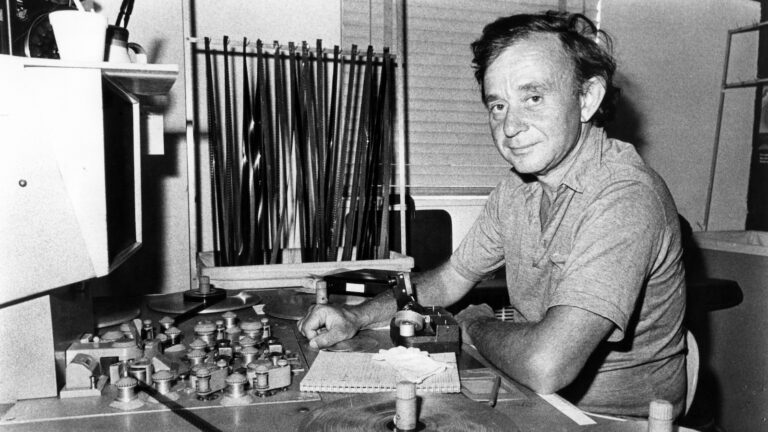Record Review: The Magnetic Fields, “Distortion”
Former Hüsker Dü / Sugar frontman Bob Mould was once asked to respond to the allegation that he is “the most depressed man in rock.” His tongue-in-cheek rejoinder was that whomever would think so “[has] never met Stephin Merritt, obviously.” Merritt’s reputation for a numbly cynical approach to human affection precedes him, and makes “Distortion” an inevitable, if still new and different, step in the progression of his most well-known project, The Magnetic Fields.
As the title suggests, “Distortion” is a noisier album than we’ve come to expect from The Magnetic Fields. The band sticks to its chamber pop instruments (guitar, piano, cello and drums), but they’re all pushing the red, and layers of icy feedback consistently careen along in the background. Notably absent are synthesizers, which Merritt makes an accented note of in the liner notes.
Bathing pop songs in noise is an idea that can most clearly be attributed to Jesus and Mary Chain, whose first album, “Psychocandy,” Merritt has praised and referenced in the PR for “Distortion.” While the sound might be similar, Merritt’s deep, analgesic voice is a far cry from JAMC’s Will Reid. While Reid could sing a line like “the sun comes up and then the day begins / and I don’t really worry ’bout the state I’m in,” Merritt is too weighed down to toss off such epigrams of youthful abandon. Reid and Merritt are both numb and loveless, but while Reid’s attitude derives from drugs and iconoclasm, Merritt projects the tranquilized distance of a 30-time loser.
In a way, “Distortion” chronicles the protagonist from “Psychocandy” grown up and burned out on life. As Merritt observes on “Too Drunk To Dream:” “sober, life is a prison / shitfaced, it is a blessing.” He’s still getting wasted, but it’s more for necessity than fun now. While Merritt’s sad-bastard attitude works well on the previously mentioned “Dream,” a clear highlight of the album, much of the lyrical content of “Distortion” fails to capture interest, hammering the same “love sucks and life sucks” point home over and over again. Unfortunately, the vocals, in stark contrast to the instruments, are by and large crystal clear, and are often placed front and center in the mix.
It’s sad to say, but a good number of these songs do not stand well against Merritt’s back catalogue. “Old Fools” slogs along and never finds anything of real substance to stick to, while “I’ll Dream Alone” would sound much better minus the distortion, and with a more creative instrumental arrangement. The slow tempos do not help; the listener is frequently suspended in aimless anticipation of the moment when a song is going to “click,” while Merritt sounds like he’s losing interest. Call it diazepop?
Criticisms aside, Merritt is too brilliant a songwriter to make a completely disappointing album. “California Girls,” featuring frequent Magnetic Fields collaborator Shirley Simms on vocals, is a witty send-up of its titular beautiful people, who “breathe coke” and “have affairs with each passing rock star.” “Please Stop Dancing” presents a pleasant duet between Merritt and Simms, while “Courtesans,” with its tale of aging beauties, makes a lovely dream pop exit for the album. In the end, these bright moments give way to an album that can’t help but feel like something of a one-trick pony. It’s nice to hear Merritt embrace a new kind of sound, but it can’t carry the weaker songs.







Leave a Reply